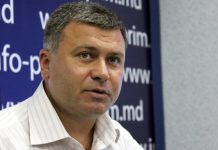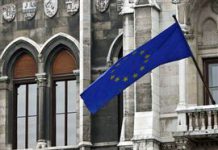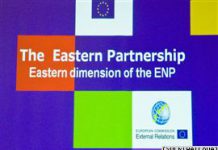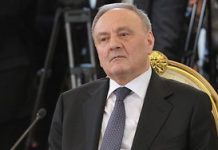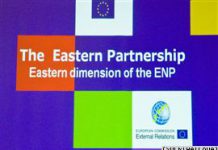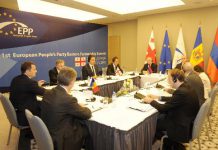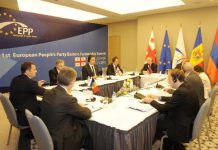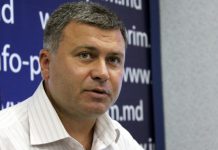APE staff
Speech by President Barroso to European Union Heads of Delegation, Annual Conference of EU...
We have concluded negotiations with Ukraine but the signing of the Agreement will depend on Kievs commitment to the European values. I hope that by the 3rd Eastern Partnership Summit, which will take place next year, more of these Agreements will be concluded, notably with Moldova.
Victor Chirila: Transnistrian settlement process: step by step, but where to? Info-Prim Neo. 15.08.2012.
This analysis has been written in the framework of the APE project European Integration and Foreign Policy Debates” that is implemented in partnership with the Friedrich Ebert Stiftung, Moldova.
The Visa-free Europe Coalition, Warsaw, 21 June 2012
The Visa-free Europe Coalition is calling upon the European Commission
to propose progression of the Republic of Moldova to the second phase of
the implementation of the Action Plan on Visa Liberalisation (APVL).
EC allocates new funding to support reforms in Moldova. EU Neighbourhood Info. 06.08.2012.
€94 million bilateral support has been allocated by the European Commission for the Republic of Moldova as part of the Annual Action Programme 2012.
EASTERN PARTNERSHIP YOUTH WINDOW: NEW OPPORTUNITIES FOR COOPERATION IN THE FIELD OF YOUTH
It offers new opportunities to finance more projects within the Youth in Action Programme involving organisations and participants from Armenia, Azerbaijan, Belarus, Georgia, Moldova and Ukraine.
Latest round of 5+2 talks on Transdniestrian settlement concludes in Vienna. OSCE. 13.07.2012.
Ambassador Erwan Fouéré (l), the Special Representative of the OSCE Chairperson-in-Office for the Transdniestrian settlement process, alongside James C. O'Shea of the Permanent Mission of Ireland to the OSCE, during official 5+2 talks, Vienna, 12 July 2012. (OSCE/Sonya Yee) .VIENNA, 13 July 2012 și Ambassador Erwan Fouéré, the Special Representative of the Chairperson-in-Office for the Transdniestrian settlement process, welcomed the constructive dialogue at official 5+2 talks which concluded in Vienna today and urged participants to redouble efforts to achieve concrete progress.
Interview with the President of the Republic of Moldova, Nicolae Timofti, to the Lithuanian...
Nicolae Timofti: I mean a bridge for people, goods and ideas to cross it over. In the Republic of Moldova, we have experts and institutions which are familiar with both East and West. Hundreds of thousands of Moldovans have travelled in Western Europe during the last years and continue to travel. On the other hand, the Republic of Moldova was part of the former USSR and now it is part of CIS, thus, our fellow citizens could mediate, on the condition of launching some platforms in this sense, some projects, for example business or cultural, because they feel themselves comfortable in both of the above mentioned regions. Also, I would imagine, for example, Chisinau as an ideal location for regional conferences, even for international ones or a very good place as centre for commercial distribution networks. And finally, a stopover in Chisinau would be enjoyed by and could be beneficial to every tourist or businessman.
European Peoples Party publishes declaration on how to strengthen the Eastern Partnership process. EU...
European People's Party (EPP) leaders have published a declaration on how to strengthen the Eastern Partnership (EaP) process following an Eastern Partnership Summit in Batumi, Georgia, on 10 July.
Viorel Ursu: How the European Union Persuaded Moldova to Fight Discrimination. Open Society InstituteșiBrussels....
The European Union uses positive conditionality—rewarding countries for adopting specific reforms—as a tool to promote open society values. The case of Moldova shows how clearly defined benchmarks and tangible reward enables the EU to push governments to adopt valuable reforms.
Exclusive: Lithuania offers Moldova EU membership perspective, Irena DegutienÄ—, Speaker of Lithuanian Seimas. Info-Prim...
Interview with Speaker of the Lithuanian Seimas Irena DegutienÄ—
Analysis by Victor Chirila: If Republic of Moldova would join the Customs Union Russia...
If the Republic of Moldova would join the Customs Union Russia-Belarus-Kazakhstan, its apologists assure us that well have a good life, well benefit from cheap gas and our wine will flow freely to the Russian market and Transnistria issue will be finally resolved. These promises/arguments are compelling for many of those 57% of Moldovans who, according to the latest Public Opinion Barometer, are ready to vote for the integration of our country into the Customs Union. It sounds like a sweet mermaid song, in particular, for that part of our society that still is nostalgic for "proletarian welfare" of the defunct USSR.
European Training Foundation meets partners to discuss regional project on continuing vocational training. EU...
The role of social partners, quality of training and effective funding mechanisms emerged as the key issues when the European Training Foundation (ETF), an EU agency, and its partners met in Tallinn, Estonia, to discuss and review the findings of the regional project on continuing vocational training (CVT) in Eastern Europe. The three-year project, launched in 2011, aims to strengthen the role of CVT in the context of socioeconomic challenges faced by Armenia, Azerbaijan, Belarus, Georgia, Moldova, Russia and Ukraine.
Invitation now open to apply for participation in the fourth meeting of the Eastern...
The Steering Committee of the EaP Civil Society Forum is now inviting all interested parties to submit expressions of interest to participate in the fourth meeting of the Eastern Partnership Civil Society Forum. The submission of expressions of interest is a necessary step in the selection process to participate in the EaP CSF meeting in Sweden in 2012.
Moldova scores 8,6 out of 10 for implementing the Action Plan on visa liberalization...
This report is both an assessment of the progress made by Republic of Moldova in implementing the Action Plan for visa liberalization and an analysis of the relationship between Chisinau and Brussels regarding visas, through a detailed comparison with the precedent set by Western Balkan countries, where visas were lifted from 2009 to 2010. The report also includes an analysis of how decisions on visas have been taken and will be taken in the EU.



